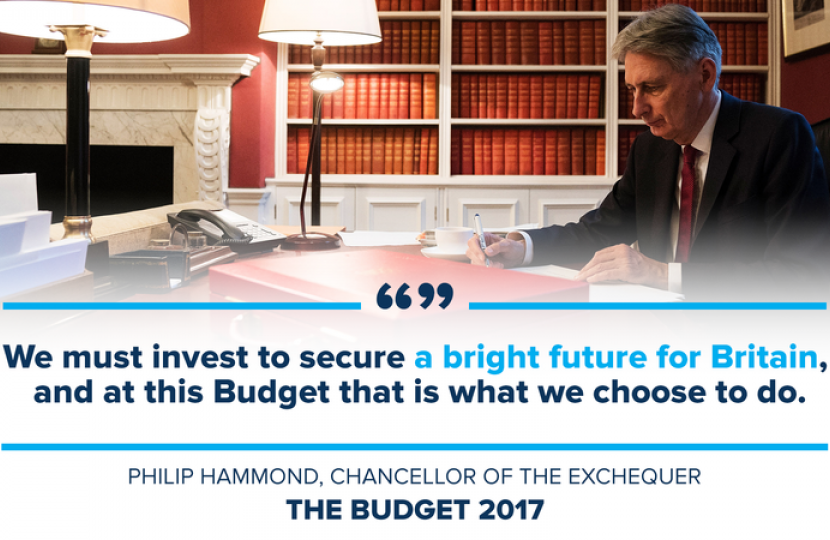
With announcements that will deliver a major house building programme, offer more help for small businesses and boost the income of working families, Damian welcomes the Autumn Budget statement.
Damian said:
“I’m pleased that the Autumn Budget includes a clear programme of support for new house building, particularly as affordability is a concern locally, with the ratio of average house prices to incomes particularly high in East Hampshire. The aim to build 300,000 new homes a year is a rate not seen since the 1970’s.”
The statement laid out plans for £15.3 billion of new financial support for house building over the next five years – taking the total to at least £44 billion. This includes £1.2 billion for the government to buy and to build more houses, and £2.7 billion for infrastructure to support housing. Changes to the planning system will encourage better use of land in cities and town,
And abolishing stamp duty land tax (SDLT) on homes under £300,000 for first-time buyers, and applying the exemption to properties worth up to £500,000, means that 80% of people buying their first home will pay no stamp duty.
Damian added:
“As small businesses are the backbone of the local economy, I’m also pleased to see more help for them through the changes being made to Business Rates next year, and the decision to hold the VAT Threshold at £85,000.”
The budget included an announcement to bring forward the planned Business Rates switch from RPI to CPI to April 2018; two years earlier than planned and worth £2.3billion over the next five years.
Damian continued:
“The government recognises that many people are feeling pressure on their budgets, and its right that we continue to support those in work through the planned increases in the tax-free personal allowances, National Living Wage and National Minimum Wage levels. In a rural area like ours, the further freeze on fuel duty is very welcome as is the new railcard for those aged 26 to 30.”
The tax-free personal allowance will rise with inflation to £11,850 from April 2018, so a typical taxpayer will pay £1,075 less income tax than in 2010-11.
The National Living Wage will increase from £7.50 to £7.83 an hour from April 2018, and over 2 million people are expected to benefit. For a full time worker, it represents a pay rise of more than £600 a year.
The National Minimum Wage levels also increase – to £7.38 for 21-24 year olds, £5.90 for 18-20 year olds, £4.20 for 16 and 17 year olds and £3.70 for apprentices.
Fuel duty will remain frozen for the eighth year in a row, saving drivers £160 a year on average, compared to the previous Labour government's plans. The government will work with the rail industry to extend discounted rail travel to those aged 26 to 30, giving 4.5 million more young people a third off their rail fares.
Damian added:
“And for those both in and out of work the major package of further measures announced on Universal Credit is a big investment in this key social security reform.”
The Chancellor set out plans for a £1.5 billion package to give more upfront support to claimants. Households who qualify for Universal Credit will be able to access a month’s worth of support within five days, via an interest-free advance, from January 2018. This can be repaid over 12 months.
Further reforms will follow. Claimants will be eligible for Universal Credit from the day they apply, rather than after seven days, and from April Housing Benefit will continue to be paid for two weeks after a Universal Credit claim is made.
Damian concluded:
“Despite the strong employment numbers, solid growth and the fact that borrowing has fallen by three quarters since 2010, we need to recognise that the level of debt is still too high.
“We need to maintain good fiscal control, securing our economic performance, yet investing in our vital public services, such as the NHS. The UK is uniquely placed to prosper from the global growth in digital and high tech industries, and we’re laying the foundation for that success with more investment in maths and science in our schools, and more funding for digital training to ensure we have the right skills in place for the future.”
The Autumn Budget included an additional £2.8 billion of funding for the NHS up to 2019-20, including £350 million for this winter and £1.6 billion next year. And another £10 billion in capital to upgrade buildings and facilities, with additional funding for agreed nurses pay rises so that patient services are protected.

